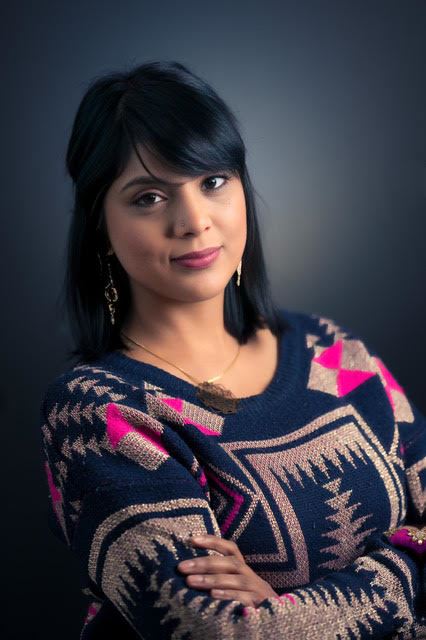 Back to Winter 2023 Newsletter
Back to Winter 2023 Newsletter
Interview with Ashwini Addala and Liliana Ramos, LMFT, Director-at-Large
Liliana: Welcome! Can we please start with an introduction of yourself.
Ashwini: My name is Ashwini Addala; I’m a licensed marriage and family therapist who is a spiritual coach, energy healer, and spiritual seeker, with a practice in downtown Willow Glen where I see adults, families, and couples. My approach with clients is centered around self-discovery, where the Self has many parts and aspects. Self-discovery, or more specifically self-awareness, is a fundamental building block of the healing work we do in sessions.
I specialize in areas of childhood trauma, generational trauma, immigrant issues. My work differs from some other therapeutic modalities because I address the mental self, emotional self, physical self, social self, sexual self, etc., and spiritual self. My approach is about seeing a person for ALL their parts, from across lifetimes and on a path of evolution. I incorporate energy healing, grounding and protection mechanisms and guided journeys (visualizations) with clients. Although I worked with children during my training I found later that working with adults and their inner child resonated with me.
Liliana: What made you decide to use spirituality during therapy?
Ashwini: As a spiritual seeker myself who underwent massive healing and transformation through my own therapy work as well spiritual and energy healing, I saw the connection between the spiritual and therapeutic healing I was doing and the improvement of my mental health. That being said, I made an honest attempt to stay true to traditional therapy but ultimately felt ineffective and inauthentic. As I experimented with slowly incorporating some techniques, I saw how effective and powerful it was, not only for treating depression and anxiety, but also in every aspect of the client’s existence, including their patience levels, their interpersonal skills, their romantic relationships, parenting of their children, and their career and professional success. I soon gained the confidence to break out of the mold of what therapy should be and made it fit to who I was as a person. I began to combine other things, such as energy work like Reiki or MotoKi to teach clients to ground or shield themselves in a different way. Guided meditations, or journeys, as some people call them are another powerful skill and tool I’ve used to help clients heal things like childhood or generational trauma.
People often confuse spirituality with religion, but it is not necessarily the same. Sometimes spirituality can mean self-awareness or seeing the “bigger picture”. Spirituality is the evolutionary trajectory that you’re on. It holds the assumption that life has meaning, and the spiritual aspirant or in my case, the therapist, helps realign ones self to be in congruence with the big picture and one’s personal meaning or purpose of life. To me, spirituality is the mindset and the evolution of what one is aiming for in life.
Energy work is just a tool, but it isn't spirituality itself. It is just a tool some people use towards their spiritual practice. So it's like a therapist that works on trauma, but is also special, has training in yoga and does yoga-based trauma work. Likewise, a person who works with spirituality can use crystals and stones, chant mantras, use dance and movement, sing songs, or practice meditation or mindfulness, etc. When we talk about spirituality is, we can get it confused with the tools. We need to remember that the actual journey of life is the spirituality.
Liliana: We've had numerous tumultuous years, politically and race -wise, COVID, world politics and wars. How can spirituality help as we end the year and begin a new one?
Ashwini: This is a wonderful time of year to take stock of our goals and desires for our lives and be actively engaged in becoming realigned with them. If we want to build a particular type of business, ask your self, “what am I doing that is aligned with building said business, and what is blocking, sidetracking, sabotaging or distracting you from this goal?” Then, with much grace and leeway we realign, adjust, and trim so that we are back on track. It is important to remember that we are in the middle of the journey and not at the end, so even if there are setbacks and detours, it’s okay. We’re not done yet. There is no judgment day.
Liliana: People might have had a crazy year personally. How do you say your goodbyes to this year so that you can open up to a clean slate in the new year?
As we close out the year, we can look at the goals that we've set for how we want our lives to look, what we want to acheive, and what kind of experiences we want to have. We just take stock, compassionately, slowly, gently, asking, “what have I been able to accomplish and where do I still need to work on it?”
Liliana: Why do you think this is important work?
Ashwini: This is such important work because it helps people redirect their entire life into being a conscious active participant who is living the life of their dreams now, not just not the present experience one is having. Not just surviving the present moment but thriving. It is important because whether or not we are aware of it or care for it, we are all on a spiritual journey. It is an essence of the human existence and we get to choose whether we engage and drive the boat or be swept up by the waves and tides.
Liliana: What would be the takeaway for a therapist reading this article?
Ashwini: To try and incorporate some questions about clients’ spiritual orientation into therapy because these are really fundamental existential things that people consciously or subconsciously follow. If someone believes that there is a hell or that there are demonic possessions, that is a good indication of how they function in the world and what their moral compass is made of.
Some questions to ask:
1. What is your spiritual or religious orientation? Some folks may need more prodding with more specific questions about their relationship with the universe or God or a higher power. There is no right answer, it just helps to understand a client’s orientation in their world. It’s also informative if someone says that there’s no belief in a higher power.
2. What do you think is the purpose or your purpose in life?
3. If your life were to end tomorrow/month/year/etc, what do you want to make sure you accomplish so you don’t have regrets?
4. What do you believe happens after death?
5. How do you feel about death? About life?
Liliana: Ashwini, thank you for this inspiring interview. Thank you for sharing with us that as we end the year, it is a good time to look at the meaning of our life; reflecting on what we want in our life as we evolve as spiritual beings.
 I'm Ashwini, a psychotherapist and energy healer. With a deep-rooted belief in the power of holistic healing, I've spent over a decade helping individuals find healing, well-being and themselves.
I'm Ashwini, a psychotherapist and energy healer. With a deep-rooted belief in the power of holistic healing, I've spent over a decade helping individuals find healing, well-being and themselves.
My journey in the healing arts has led me to study and practice various modalities, including Reiki, chakra balancing, and mindfulness meditation in addition to other proven evidenced-based healing techniques such as CBT and DBT. I'm passionate about guiding my clients on their path to self-discovery and thriving, helping them tap into their own inner wisdom and abundance.
My work is not just a profession; it's a calling. I'm here to support clients in their quest for physical, emotional, mental and spiritual harmony. When I'm not facilitating psychotherapy or reiki healing sessions, you can find me connecting with nature or making art with my family.
Back to Winter 2023 Newsletter
